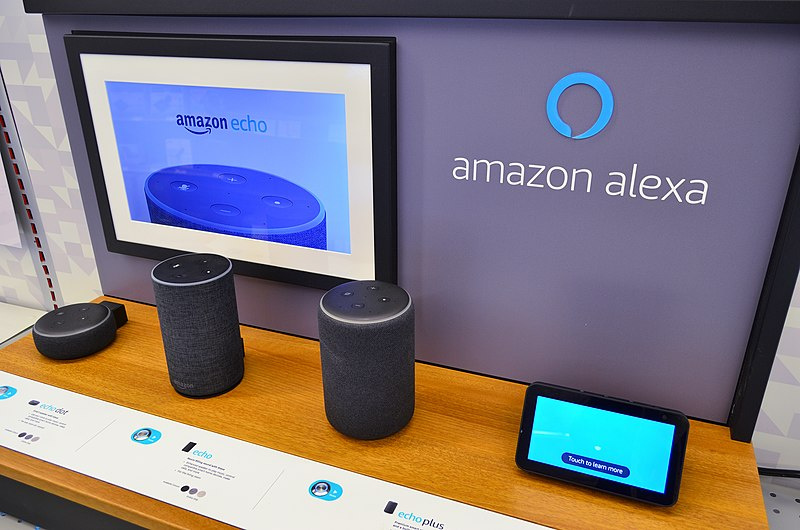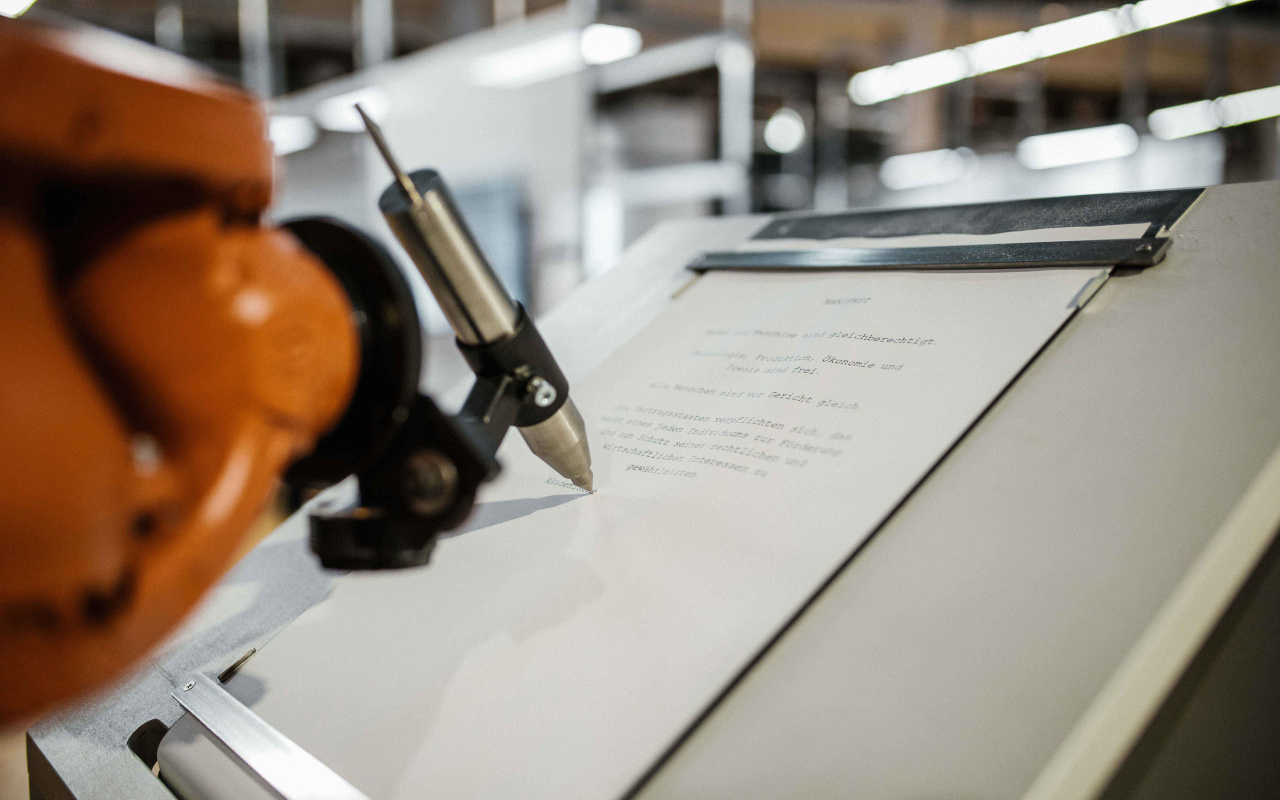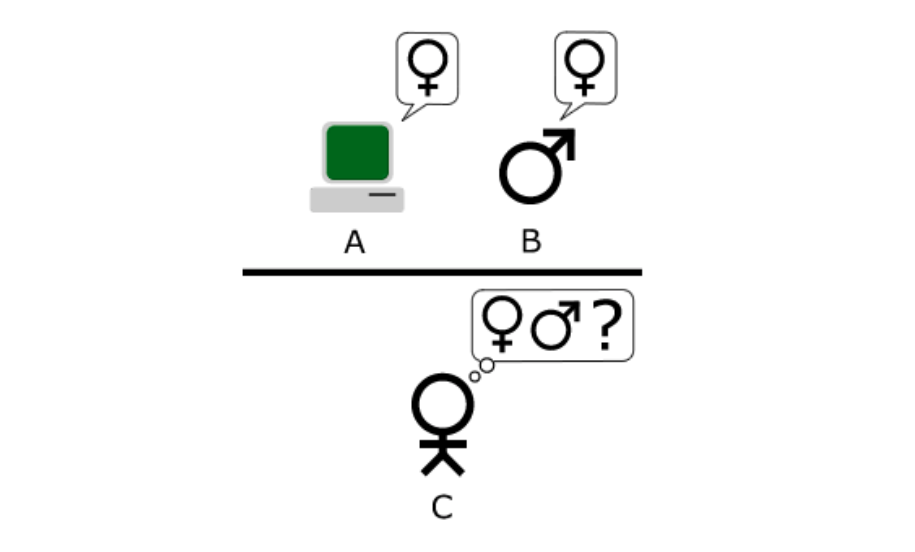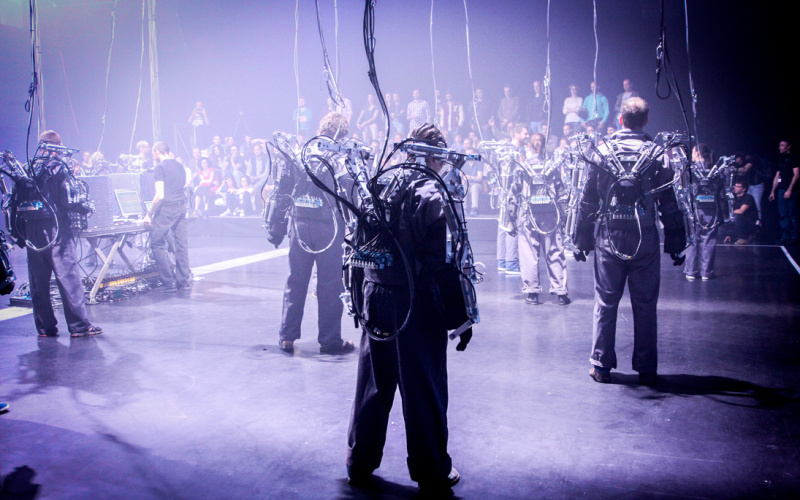Artificial intelligence – a first encounter
User: Alexa, what is the meaning of life?
Alexa: 42, and don't forget your towel.
Around 63% of the German population have already heard of it, 18% own one: Alexa¹.the language assistant, which has given a whole new dimension to the woman's name, can be found among other language assistants such as Cortana or Google Assistant between more frequent in households. The fact that it has a supposed answer to the meaning of life is a simple one: with the help of machine learning and so-called skills, the language assistant acquires knowledge and skills with which – ideally – over time he or she will be able to answer the queries of his or her users more and more effectively. The number 42 and the towel refer to the science fiction story »Hitchhiking through the Galaxy« by Douglas Adams.
The »skills« of a voice assistant used here are similar to the apps on a smartphone. The speech assistant is given practical additional functions by subsequently activated skills and can then fulfill more and more individual wishes, e.g. lamps, thermostats etc. can be controlled by a speech assistant. This makes it a technically highly developed device, but not artificial intelligence in the sense of a human brain.
But what is artificial intelligence?
Artificial intelligence (AI), as Wikipedia² teaches us, is also called artificial intelligence (AI or A. I.) and is a subfield of computer science. It is mainly concerned with the automation of intelligent behaviour and machine learning. If you have gotten this far, you will fail at the latest with the question what »intelligent« means in this context. But one thing at a time.
Automatically intelligent?
Automation is initially a work process. Automated systems are capable of independently solving tasks or problems of a constant or even changing nature. In this context, automation systems have the »inherent endeavour« ³ to achieve goals by acting automatically or autonomously (autonomously) or, when goals are reached, to develop activities to stabilise the system despite existing faults. Automation is mainly used in areas of monitoring, controlling and regulating processes, e.g. production processes.
Machine learning refers to the generation of knowledge from experience. The machine or software is trained on the basis of experience, whereby the examples are not learned by heart, but patterns and regularities in the learning data can be recognized and thus generalized. An artificial system thus learns from examples and can generalize them after the learning phase is completed. Here, algorithms are used that tell the system how to learn. A distinction is made, for example, between so-called »supervised« and »unsupervised learning« and numerous sub-categories.
It is important to note here that these are fast computational processes that are still a long way from, for example, emphatic human abilities and thus from human intelligence.
Weak and strong artificial intelligence
To support human thinking with regard to concrete application problems, and to simulate intelligent behaviour with the means of mathematics and computer science is the focus of weak artificial intelligence. Its main task is to perform clearly defined tasks. Examples of weak AI are text, image or speech recognition (see Alexa), automated translation or expert systems. If we are confronted with applications of AI today, it is the weak AI that is still stronger in this sense – at least in the calculation of tasks – than we will ever be ourselves. It is capable of processing large amounts of data and learning along with them.
The goal of a strong artificial intelligence, on the other hand, is to achieve or even exceed the same intellectual abilities of humans, whereas a strong AI system does not have to have many similarities with humans. Its cognitive architecture no longer acts only reactively, but also on its own initiative, intelligently and flexibly. To date, it has not yet been possible to develop a strong artificial intelligence. It is assumed that in the future - although it will be able to stimulate feelings such as love, hate or fear – it will not possess it itself.
What does intelligent mean?
The concept of artificial intelligence today presents us with the difficulty of a precise definition. Due to the varying degrees of individual cognitive abilities and a lack of agreement on how to determine them, such a definition is difficult to make. Different theories of intelligence propose different operationalizations of the term in everyday language. The »Turing Test« can be used to check – at least approximately – whether a machine can exhibit intelligence equivalent to that of humans. This test states that if a human being is no longer able to recognize whether the person opposite him (e.g. during a telephone conversation) is a machine or a human being, the machine is considered intelligent in this sub-area.
¹ Survey in Germany on the awareness of Alexa (virtual assistant) 2019, Statista
² https://de.wikipedia.org/wiki/K%C3%BCnstliche_Intelligenz, accessed on 28.03.2020
³ https://de.wikipedia.org/wiki/Automatisierung, accessed on 28.03.2020






